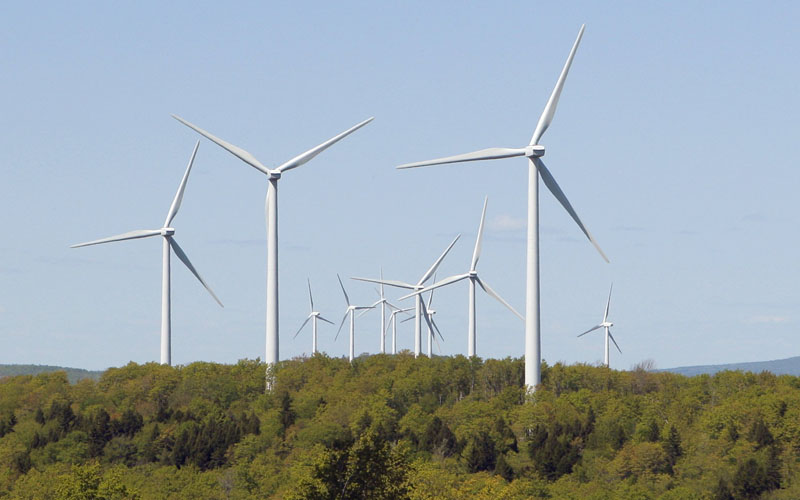Maine’s on-shore wind capacity may be a victim of its supporters’ over-hyped promises.
Maine is no more the “Saudi Arabia of wind” than is Texas or Iowa or any of the dozens of places that made the same claim.
Wind power does not come without any environmental cost. There are visual impacts, there are wildlife impacts, and there are impacts that come from any construction in a remote area — and that includes not only the turbines themselves but also the transmission lines that bring electricity to customers.
And wind power is not necessarily cheap and will not on its own reduce the state’s already too-high utilities costs, unless it is subsidized by government programs while it is in its developmental stages.
However, that does not mean that responsible on-shore wind development should not be part of Maine’s energy mix. It should. Opponents to the current proposal to develop wind farms in Highland Plantation should do more than just list its shortcomings.
While it’s true that wind power has some negative environmental impacts, it’s also true that it has enormous benefits. When there is wind-produced power on the grid, demand for power from other sources is reduced. That means less coal will be burned to meet our need for electricity.
The problem with wind power is that while its impacts are local, its benefits are distributed globally. Siting wind farms is always a problem, and that creates an unreasonable burden for developers.
Wind farms run into roadblocks if they are too close to places where people live and when they are in “pristine” undeveloped areas.
Gov. Baldacci’s wind task force brought people from industry and environmental groups together to identify the areas of the state that would be suitable for wind development. The Highland Plantation farm falls into that zone.
Wind power may not be a panacea, but it should be part of Maine’s energy future. According to a recent poll by Pan Atlantic SMS Group, more than 80 percent of Mainers agree.
It is long past the time to come to a consensus about how much on-shore wind we can realistically produce, and accept the compromises that come from producing it.
Send questions/comments to the editors.



Comments are no longer available on this story